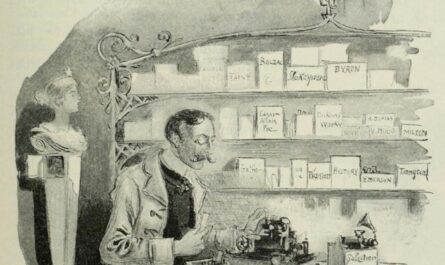Over a recent sabbatical week, I took on the “Read to Lead” challenge from Ryan Holiday’s Daily Stoic. A two-week reading course designed push your reading abilities, readers encounter prompts for new book recommendations, ideas for discovering rare and unique books, as well as methods for getting more out of your reading. It’s also a challenge to read more every day.
What is the “Read to Lead” challenge?
I appreciate the Daily Stoic team framing reading as part of the never-ending journey of a life of learning and improvement. Books are not simply tools to show us more on a particular topic; they possess wisdom and inspiration to illuminate our thinking and change our lives. Daily Stoic and Holiday are consistent reminders of the entire point of reading – to improve your life. They put it like this, “Reading to lead is not something that is taught in schools. In English and history classes across the country, we’re taught to memorize factoids—names, dates, places. We’re told Who, What, When, and Where are more important than How and Why. Our approach to reading and to books and to education has been Jeopardy-ized.”
Instead, they challenge readers to relentlessly ask How and Why of every book encountered. The course promises to show learners how to read more and remember more of what you read. You’ll set up a library and learn tips for choosing books to read. You’ll also look at how a critic evaluates material, or what Mortimer Adler called “inspectional” reading. As a result of this course, I’ve read more books, and also become more focused on the topics I explore. The titles I choose are directly related to projects I am working on or expanding my understanding of favorite assorted topics. Instead of reading for its own sake, reading has become a vital part of me intentionally learning new things every day. The results of this course were small but critical shifts in my daily mindset, like a fine-tuning of machinery.
Today we’ll look at my three largest takeaways from the “Read to Lead” challenge course.
Lesson One: Learning Every Single Day
The course begins with a strategy for capturing interesting quotes or ideas – the commonplace book. A commonplace book is a home for observations, stories, questions, lyrics, or anything else you find striking over the course of the day. I’ve kept such a journal for years and even written about the importance of a commonplace book or journal before. This means seeking out quality information worth writing down and revisiting, but also requires you think about what you are writing. Doing this by hand is especially effective, since you may have to consider only jotting down the most important aspects of the piece in question. Making sure to add to the commonplace book daily ensures you never stop learning, because you’ve built the habit of learning something daily. The shift for me during this course was in finding at least one piece of information every day to add to my journal. I’ve taken the encouragement to find something worthwhile daily to heart; if I get through my daily reading and don’t find something worth noting, I go online to do more research or find an essay to read.
I’ve found this daily practice very helpful; that extra step assures I am learning something every day and constantly reminded of how much more I have to learn. The real value here is in transitioning your mindset from passively consuming material to mastering it and using it. Reading books is one thing; digging into them for the lessons they teach and the questions they ask another. What Daily Stoic has accomplished is gathering the steps of that journey into one central place for you to experience and revisit.
Lesson Two: Value of the Anti-library
The next lesson was about setting up an anti-library. Using Nassim Nicholas Taleb’s definition from The Black Swan, the “anti-library” as a collection of books you haven’t read, the point is that the unread books remind you of how much you don’t know. It’s a visual representation of Rumsfeld’s known unknowns. As we learn more, we realize how much more we don’t know. As we grow in understanding, our anti-library should also grow to ensure we always keep pushing to learn more and understand more deeply.
The essence of the anti-library is gathering books you haven’t read, but which contain answers or ideas you’ll look for one day. It’s another humbling reminder of how much you don’t know. The point of a library is not to have a record of everything you have read, but to have access to ideas, questions, people, and perspectives whenever you need them. With that in mind, I worry less about deciding which books to buy between similar titles. So long as I have books containing new ideas and worlds, I know it will be a valuable addition to my anti-library.
I’ve also begun gathering titles to study a single topic in depth. Over the past few months, I’ve been reading about the history of journalism in the United States. I’ve gathered ten additional titles I plan to read in the next few months. I’ve also put together the books from a single author I admire to study patterns and write about later this year. All of these books will help me to better understand how information travels, but in the meantime remind me just how much I still have to learn.
Lesson Three: How will I spend this time?
As a result of taking this challenge, you begin to view time a little differently. It’s less something to spend and becomes more of a resource to redeem. You ask yourself things like, “Where do I want to spend my time?” and “How much could I learn something just by spending a few more minutes reading?”. I’ve developed the habit of asking myself, “How do I want to spend the next bit of time?” when I find myself looking for something to do or reaching for my phone to pass time.
There are a couple moments in the course where you are asked to replace time spent on lesser things with time actively reading. This is so important as more and more options compete for our time. The only way we can make wise decisions is by deciding beforehand to spend time on things which add to our lives, instead of empty, passive things like social media feeds or nonsensical headlines.
Actively choosing how to spend my time has been such a huge, tangible lesson, especially when combined with the first lesson of finding something worth contemplating every single day. I literally pause each evening and ask myself how I’d rather spend my time; on learning or by watch something. It’s not that watching television is a bad choice. Sometimes I choose to relax and watch a great movie or favorite episode of Frasier. It’s having television as an automatic default which is a poor choice. It’s the habit of wasting time passively consuming which sets you up for failure. The key is realizing you have a choice every day on where to spend your time; Netflix or reading; passive or active. The choice is always there. When you start considering reading to be the gaining of potential growth, it becomes less about finding time and more about making time for it. It’s this shift from task to opportunity which has made the difference in my daily reading habit.
Bonus Lesson: Fiction
Any discussion reading would be incomplete without looking at fiction and how it fits into a daily reading habit. I like that Holiday makes a point to mention fiction because most serious readers, especially those interested in philosophy, tend to dismiss fiction as a waste of time. Fiction is not a waste, and I’m glad someone with such reach in the non-fiction world is saying as much. Fiction is where we learn empathy. The medium allows for questions and contemplations of life, without forcing them into a biography or personal development setting. In fiction, we sympathize with characters, we live inside their perspectives, we grow to love them. In our minds, they almost become real people; that is the point. We are inhabiting the thoughts, challenges, and victories of another person, walking in their shoes. We learn empathy. Fiction accomplishes a great feat in allowing us to participate in a culture we may never have otherwise even known about. We get to see how other people think about obstacles, deal with emotions, and process events without having to deal with the real-world consequences. We can experience other perspectives without abandoning our own.
Holiday is careful to distinguish literary fiction from popular fiction. Classical literary fiction is well-written and speaks to universal themes and questions; popular or “paperback” fiction is written to be consumed and digested quickly. While discussing fiction, the Daily Stoic team reminds us to always look at the timeless questions presented, in addition to what the author is saying about the current issues of their time. I recently revisited several classic fiction titles, as you may have noticed on my reading newsletter, and picked up more on the themes the authors were illuminating. Classic fiction never gets old and always has new gifts to share.
Final Thoughts
The “Read to Lead” challenge was a welcome jump start for my daily reading habit. Interestingly, though, I don’t know that I would consider this a reading course. I consider it a toolbox for learning, which includes reading. The title “Read to Lead” refers to a quote from President Truman, “Not all readers are leaders, but all leaders are readers.” There is a focus on reading, not just to learn more, but to put that knowledge into action and create change in your sphere of influence. Holiday directly addresses the idea of reading for the sake of having read, and dismisses it as vanity. Reading is the most secure shortcut to wisdom, we are reminded through the two weeks of lessons. The foundation of the course is to build the habits of great leaders, which include reading, preparation, discussing and reaching out to others, putting knowledge to action, and pooling resources for future use. These three lessons of finding something new to consider daily, building an anti-library, and thoughtfully considering how you spend your time have allowed me to think more deeply about the lessons I am learning, and find ways to act on them. I’ve built the habit of learning every single day, which is amazing, as well as increased my weekly reading times and diving deeply into topics which interest me.




